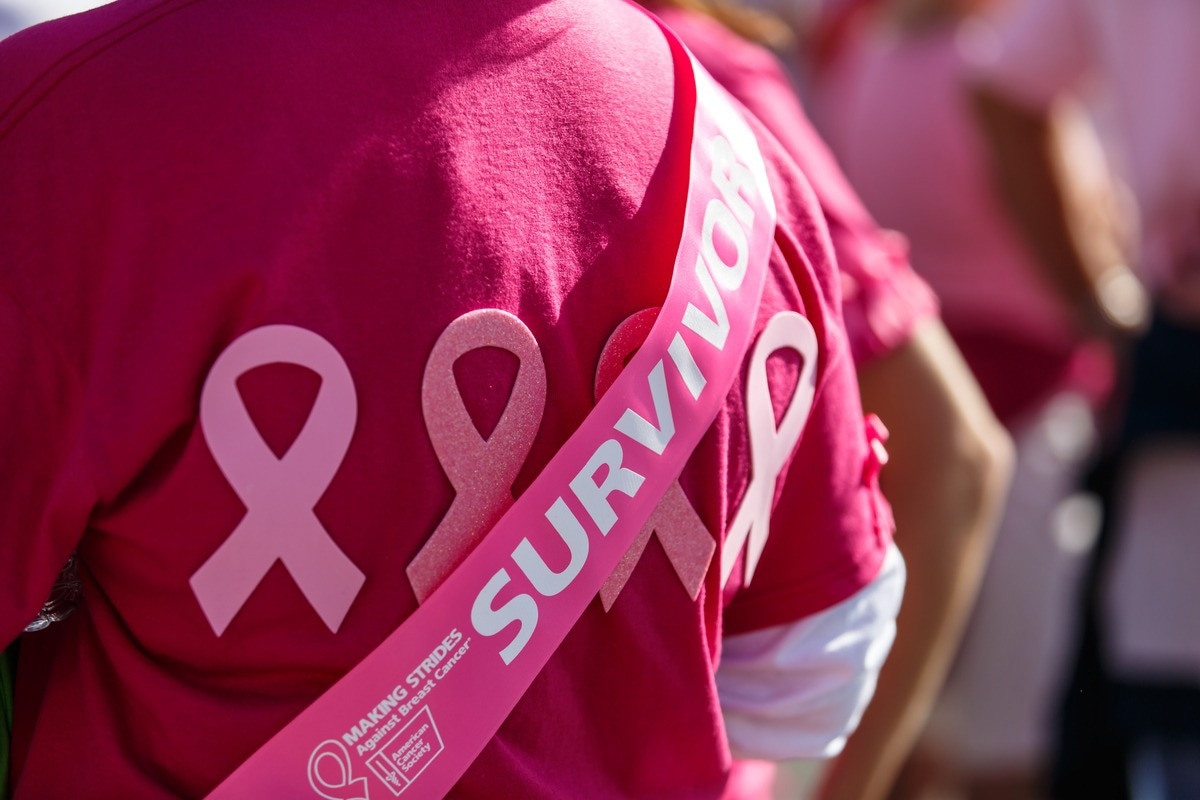The mental health of sexual minorities
Epidemiology of mental health in sexual/gender minorities
Understanding the mental health of Black/Ethnic minorities in the UK
Young adult and adolescent female cancer survivors’ mental health outcomes
Impact of the COVID-19 pandemic on the mental health of sexual and gender minority populations
Looking forward
References
Further reading
Sexual, gender and ethnic minorities have faced significant health-related difficulties, especially in terms of mental health. In the past decade, many studies have been published focusing on the mental health scenario for these groups. There is a need to develop and implement various initiatives, including social support groups, to provide discrimination-free assistance.
The mental health of sexual minorities
Many studies have found that sexual minorities (SM), such as lesbians, gays, bisexuals (LGB), primarily heterosexuals, or questioning people, have higher mental health difficulties than heterosexuals. These findings have been reproduced; however, it has only been since the 1990s when SM people have been sampled from the general population rather than from LGB societies, which could lead to skewed results. In most studied mental health issues, substance use difficulties, and suicidality, a few meta-analyses found statistically significant differences for SM compared to heterosexual individuals.
Sexual/gender minority youth are more likely than their non-sexual/gender minority peers to suffer from anxiety and depression, ponder suicide, and be victimized due to their identities. According to research, higher school connectedness and connections with supportive adults are related to superior mental health outcomes, but marginalized children do not always benefit from these ties.

Image Credit: Miller Inna/Shutterstock.com
A study of transgender kids found that one out of every three had been a victim and that victimization was associated with poor mental health and a lack of school belonging. Transgender students are also more likely to be truant, have lower grades, and perceive their school climate as unsupportive; among the top reasons for truancy were feeling unsafe at school and substance abuse.
In all dimensions of sexual orientation (behavior, attraction, identity), for both genders, age groups, regions, and in more recent studies, the vast majority of studies reported elevated levels of depression for all SM subgroups. Only a few studies on suicide death are known. According to Danish registry data, same-sex registered partners had a higher suicide rate than heterosexual married couples. In all categories of SO (sexual orientation), the bulk of study results (83%) indicated higher anxiety levels or rates of anxiety disorders (panic episodes (PD), generalized anxiety disorders (phobias) in general or across SM subgroups.
Epidemiology of mental health in sexual/gender minorities
Because of unsupportive people and policies, sexual/gender minority adolescents (both in the United States and globally) are more likely to report that school is unwelcoming or unsafe. In New Zealand and the United Kingdom, unsupportive policies and a lack of staff support have been linked to an increased risk of suicide.
LGB individuals have some of the worst mental health in Australia. LGB Australians are three times more likely than the general population to suffer from mood disorders, two times more likely to suffer from anxiety disorders, and two times more likely to satisfy diagnostic criteria for any mental condition in 12 months. Suicidal ideation, suicide attempts, and non-suicidal self-injury are also more common among LGB Australians than among heterosexual Australians.
Understanding the mental health of Black/Ethnic minorities in the UK
Despite major government policy attempts, inequities in the United Kingdom (UK) mental health system continue to exist for Black and Minority Ethnic (BME) groups. For many ethnic minorities, obtaining a higher education remains a challenge. BME students in higher education experience numerous challenges to culturally appropriate services, including a lack of cultural knowledge, communication issues, and knowing where and how to seek support.

Image Credit: SeventyFour/Shutterstock
The influence of managing racial inequality and discrimination at university on mental health was investigated using the narratives of 32 BME university students. The impact of belonging, isolation, and marginalization on mental health, as well as how this affects BME students’ university engagement, were all explored. The major findings presented, based on a thematic analysis paradigm, relate to differing healthcare outcomes for ethnic minority university students with mental illness. The study’s findings and suggestions call for more diversity in mental health support networks for ethnic minority students at institutions. The conclusions will also examine how existing systems may be used to eliminate racial inequity in mental health.
Young adult and adolescent female cancer survivors’ mental health outcomes
Individuals from sexual minorities (SM) have greater rates of anxiety and sadness. Previous research on mental health disparities among SM cancer survivors has been focused on adult survivors; however, studies in the adolescent and young adult (AYA) population are sparse.
A cross-sectional investigation was conducted on 1025 AYA survivors aged 18–40 years (2015–2017). The Patient Health Questionnaire (PHQ8) and the Generalized Anxiety Disorder Scale (GAD7) were used to assess patients’ self-reported SM identification as well as depression and anxiety symptoms. Associations between SM identification and depression and anxiety were investigated using multivariable logistic regression.
Sixty-four participants (6%) identified themselves as SMs. In adjusted analyses, SM participants had 1.88 times the chance of being anxious as heterosexual participants. There was no evidence that SM participants had an increased risk of depression. A higher level of social support was found to be associated with a lower risk of depression. While mental health screening is recommended throughout the cancer care continuum, these findings highlight the need for reliable screening, clinician awareness of the AYA, SM survivor population’s increased vulnerability, and clinician training on culturally competent care and the development of evidence-based interventions.

Image Credit: Eliyahu Yosef Parypa/Shutterstock
Impact of the COVID-19 pandemic on the mental health of sexual and gender minority populations
The pandemic’s long-term consequences are unknown, as the uncertainty surrounding the SARS-CoV-2 virus and its risk have direct and negative consequences in the healthcare, social, political, and emotional realms. Concerning psychological and physical health discrepancies between sexual minority and heterosexual populations had been documented before the commencement of the COVID-19 epidemic. The proportion of lesbian, homosexual, or bisexual respondents suffering substantial psychological distress in the past 30 days (8%) is more than double that of heterosexual respondents, according to the 2018 NHIS findings.
In addition to the pandemic’s overall stress, the mental health effects of minority identity-specific stressors may be amplified. Furthermore, SGM (sexual and gender minority) individuals interpret, use, and rely on social supports differently than cisgender, heterosexual individuals, and social distancing standards may impair the buffering benefits of social support. Many people have been affected by the COVID-19 pandemic on a personal, social, and economic level, yet the pandemic’s disproportionately negative effects continue to highlight racial, social, and socioeconomic imbalances.
Looking forward
There are severe mental health disparities among sexual/gender minority youth. Anxiety and depressive symptoms can be eased by a supportive school atmosphere. The presence of a Gay-Straight Alliance has been used in several pieces of research as a proxy for a favorable school climate. To assist the mental health of minority populations, non-discriminatory mental health services must be established and implemented.
References
- Desai, M. J., Gold, R. S., Jones, C. K., Din, H., Dietz, A. C., Shliakhtsitsava, K., Martinez, M. E., Vaida, F., & Su, H. I. (2021). Mental Health Outcomes in Adolescent and Young Adult Female Cancer Survivors of a Sexual Minority. Journal of adolescent and young adult oncology, 10(2), 148–155. https://doi.org/10.1089/jayao.2020.0082
- Moore, S. E., Wierenga, K. L., Prince, D. M., Gillani, B., & Mintz, L. J. (2021). Disproportionate Impact of the COVID-19 Pandemic on Perceived Social Support, Mental Health and Somatic Symptoms in Sexual and Gender Minority Populations. Journal of homosexuality, 68(4), 577–591. https://doi.org/10.1080/00918369.2020.1868184
- Colvin, S., Egan, J. E., & Coulter, R. (2019). School Climate & Sexual and Gender Minority Adolescent Mental Health. Journal of youth and adolescence, 48(10), 1938–1951. https://doi.org/10.1007/s10964-019-01108-w
- Verrelli, S., White, F. A., Harvey, L. J., & Pulciani, M. R. (2019). Minority stress, social support, and the mental health of lesbian, gay, and bisexual Australians during the Australian Marriage Law Postal Survey. Australian Psychologist, 54(4), 336-346.
- Arday, J. (2018). Understanding mental health: what are the issues for black and ethnic minority students at university?. Social Sciences, 7(10), 196.
- Sattler, F. A., Wagner, U., & Christiansen, H. (2016). Effects of Minority Stress, Group-Level Coping, and Social Support on Mental Health of German Gay Men. PloS one, 11(3), e0150562. https://doi.org/10.1371/journal.pone.0150562
- Plöderl, M., & Tremblay, P. (2015). Mental health of sexual minorities. A systematic review. International review of psychiatry (Abingdon, England), 27(5), 367–385. https://doi.org/10.3109/09540261.2015.1083949
- Goebert, D. (2009). Social support, mental health, minorities, and acculturative stress. In Determinants of minority mental health and wellness (pp. 1-24). Springer, New York, NY.








